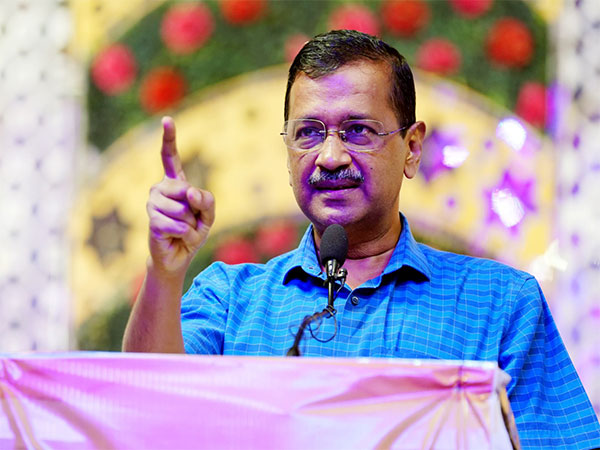
KOCHI: In the heart of kitchens around the world lies a simple, unassuming ingredient — the egg. When you don’t have the energy to cook up a storm in the kitchen, cracking an egg often leads to a satisfying meal with minimal effort. In short, it’s hard to go wrong with this versatile staple.
Perhaps this explains why eggs have become a mainstay in our diets for ages. Indeed, the domestication of fowls, especially chicken, began as far back as 6000 BC. This not only ensured increased availability of eggs but it also meant having a good source of protein without harming the animal.
Though the mostly commonly consumed eggs in the world are chicken, the Romans enjoyed peafowl eggs, while the Chinese favoured pigeon eggs and the Pheonicians, ostrich eggs. Humans also ate reptile eggs including those from pelicans, turtles and crocodiles. In the first-century cookbook Ars Magirica by the gourmet Apicius, eggs are mentioned frequently.
Apicius is credited with creating early versions of baked custard, a delicious blend of honey, milk, and eggs. Hard-boiled eggs were a staple in Roman meals, often served as appetisers and included in cakes and baked goods. One popular Roman dish, libum, was a cake made from flour, cheese and eggs.
While eggs played an important role in Roman cuisine, they were rarely eaten on their own as we do today. Instead, they were mixed into more elaborate recipes. Additionally, early African cultures used egg whites as a thickening agent in various recipes.
As human reliance on eggs grew over time, the way they are devoured also changed worldwide. Whether scrambled, baked, poached or fried, there are a thousand ways to prepare an egg. Inventions come in daily.
Interestingly (or bizarre), recently, the internet witnessed a viral video of a Kolkata street vendor cooking eggs in Fanta. Yes, you read it right. The dish is named as Orange Soda Bhurji.
After pouring an entire bottle of Fanta into a hot pan, eggs are cracked into the fizzy liquid and a pinch of salt. As the egg cooks, the vendor adds chopped tomatoes, onions, green chillies, and cilantro. This unique pairing has drawn both admiration and scepticism from viewers.
In Turkey, one of the most beloved egg dishes is Menemen, a comforting mix of eggs, tomatoes, peppers, and spices, often added with cheese or meat. This dish pairs perfectly with bread and shares similarities with North African Shakshuka, which has poached eggs, onions, tomatoes, and spices. Shakshuka’s popularity has spread beyond its region, influencing cuisines in the Middle East and around the Mediterranean.
In Japan, the omelette known as omusoba features stir-fried noodles, meat, and vegetables wrapped in a fluffy omelette drizzled with tonkatsu sauce. Meanwhile, in India, egg curry reigns as a sought-after dish, often enjoyed with naan or rice. New Zealanders savor bacon and egg pie, which can be made with beaten or boiled eggs, and may include peas and spring onions.
Quiche, which originated in Germany in the 16th century, showcases eggs in a savoury pastry. And then there’s pastel de nata, a delightful dessert inspired by the Chinese egg tart, created from leftover egg yolks. Eggs aren’t limited to just chicken.
Kwek Kwek, a popular Filipino street food, features deep-fried quail eggs served with a spicy vinegar sauce. In Vietnam, Hot Vit Lon consists of boiled duck eggs. Peel back the shell just enough that the liquid inside won’t spill out, add pepper, salt, and vinegar.
This is a delicacy with healing properties. It’s no surprise that eggs have long been celebrated as “superfoods,” primarily due to their impressive nutrient profile. As a complete protein, eggs contain all nine essential amino acids necessary for growth and development.
They are also rich in B vitamins and vitamin D, supporting heart health and eye health. One of the standout nutrients found in eggs is choline, which is essential in the functioning of brain,including memory. A recent study published in the journal Nutrients found that eggs can make your ‘brain sharper’.
It states that eggs can prevent ‘cognitive decline’ in older women. It can help in ‘improving our semantic memory.’ Furthermore, studies suggest that when eggs are combined with dairy, they may help modulate the immune system and offer anti-inflammatory benefits.
The question of how many eggs are ideal to consume in a day, as well as whether egg whites or yolks are better, has long been debated. According to Rajiv Ambat, CEO and founder of NuvoVivo Center for Obesity, Lifestyle Disorders & Research, the scientific community has yet to reach a conclusive answer on this topic. He recommends a daily intake of 2 to a maximum of 3 eggs, ensuring that this consumption is balanced with an adequate amount of vegetables and fibre, alongside a generally healthy lifestyle.
“This recommendation for two eggs per day aligns with guidelines from the American Heart Association, which suggests keeping cholesterol intake below 300-350 mg per day. Since a single egg contains approximately 150-200 mg of cholesterol, consuming two eggs is a safer choice,” says Rajiv. Now about the egg yolks versus egg whites debate, Rajiv highlights the nutritional advantages of each part.
The yolk contains minerals, selenium, vitamin D3, and vitamin A. It contains about 2 gm of protein and 5 gm of fat, totalling roughly 45 calories. The egg white is a source of high-quality protein, providing about 4 grams of protein (16 calories).
“Both egg whites and yolks offer valuable nutrients, making them beneficial components of a healthy diet,”he says. Crush the puttu and set aside. If it feels too dry, drizzle 1-2 tablespoons of water and mix well.
In a kadai (wok), heat oil over medium heat. Once hot, add mustard seeds and let them splutter. Add dry red chillies and curry leaves, sautéing briefly until fragrant.
Add the chopped onions and sauté until they turn a light golden brown. Stir in the dry red chilli flakes and sauté for an additional minute. Add a pinch of turmeric powder and the cubed-boiled eggs, mixing well.
Gently fold in the crushed puttu, ensuring it is well mixed with the egg and spice mixture. Season with salt to taste. Serve hot.
Boil the eggs and peel off the shells. Carefully make parallel slits on the eggs, ensuring the base remains intact. Heat a pan and add olive oil, chopped garlic, sesame seeds, salt, and black pepper.
Sauté for about 30 seconds, be careful not to burn the mixture. Turn off the stove and add chopped parsley leaves. Pour this tempering generously over the slits in the eggs.
Serve hot and enjoy! Separate egg yolk and white. Put whites in a large bowl and yolk in five small separate bowls. Whip egg whites, until they form peaks.
Carefully fold in the cheese, chives and bacon. Line the baking dish with parchment paper and spoon five mounds of whipped egg white mixture. Make a deep well in the centre with the back of a spoon.
Bake in a pre-heated oven at 200°C for 3 mins and remove from oven. Add one yolk to each well and season with salt and pepper. Return to oven and bake until set about three minutes.
Garnish with chilli flakes or chilli oil. Heat oil in a pan and add fennel seeds garlic, ginger, onion, curry leaves, and green chilli. Sauté it until it turns transparent.
Now, add all the seasonings and boiled potatoes. Add the chopped coriander leaves and mash well. Make a thick masala.
Take the boiled egg and coat them with the prepared masala in a coconut shape. Dip into the beaten eggs and coat with bread crumbs. Deep fry in sunflower oil until it turns golden brown.
Enjoy the snack. Poach the egg and keep it aside. In a bowl, add the avocado flesh, chopped onions, coriander, lemon juice, and salt, mix them well, and keep them aside.
Place the smoked turkey slice over the bread cube and spread the avocado mix over the turkey slice. Now, place the poached egg over the avocado mix. Garnish.
.










